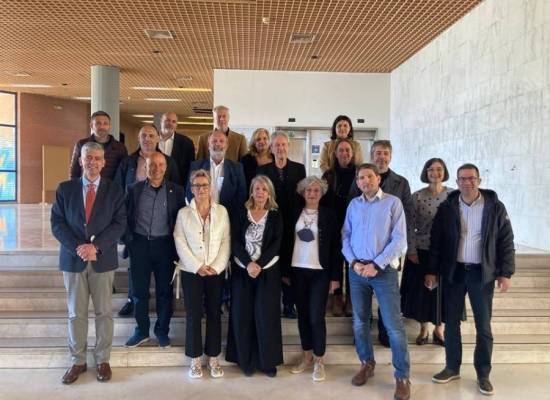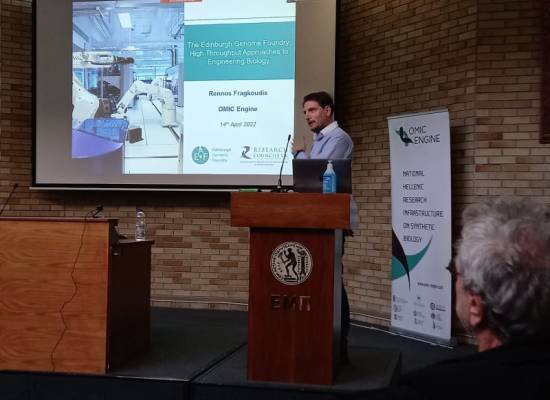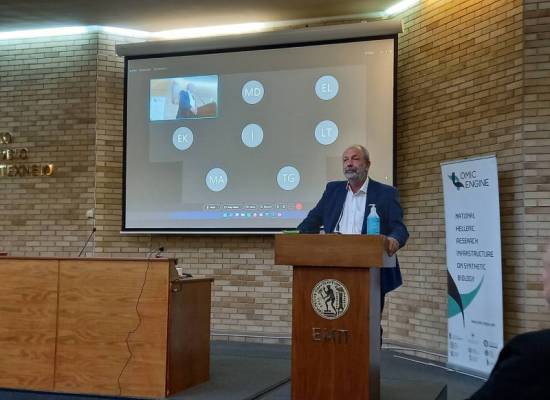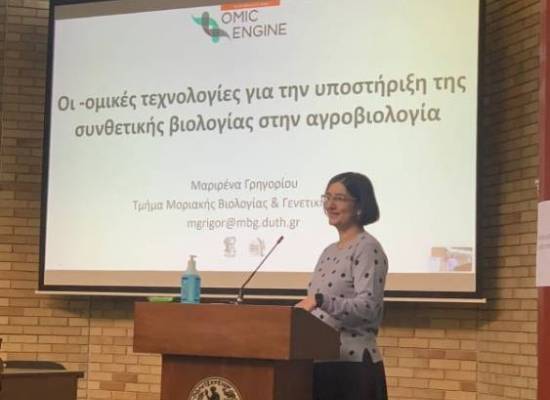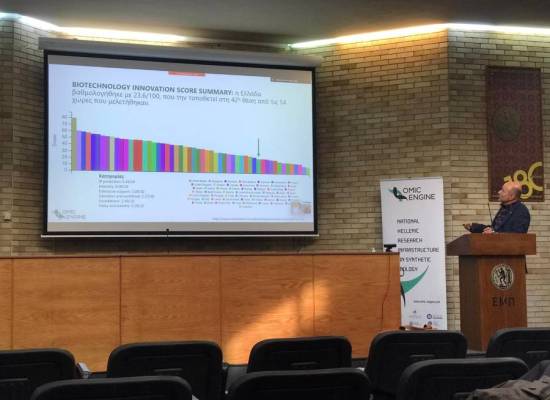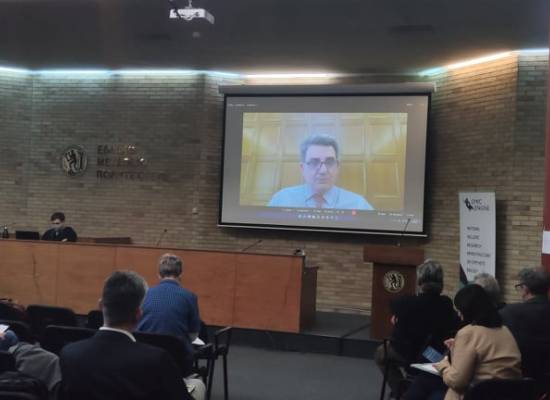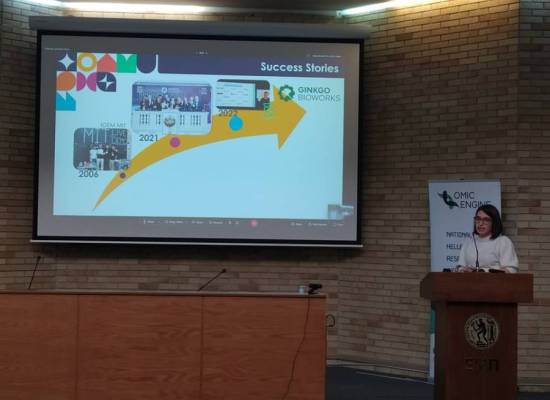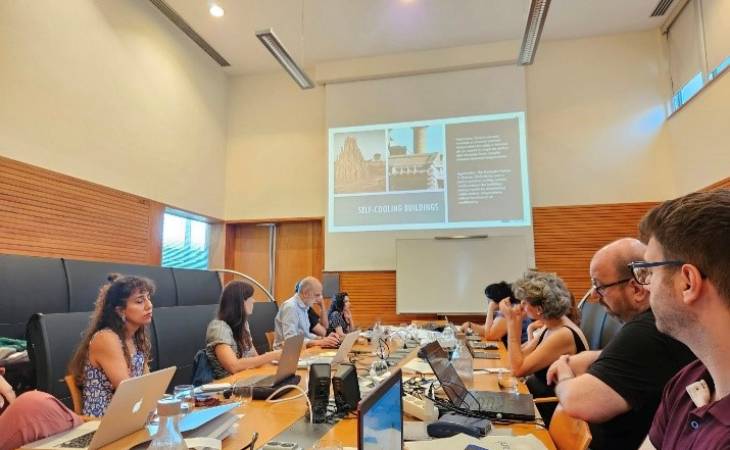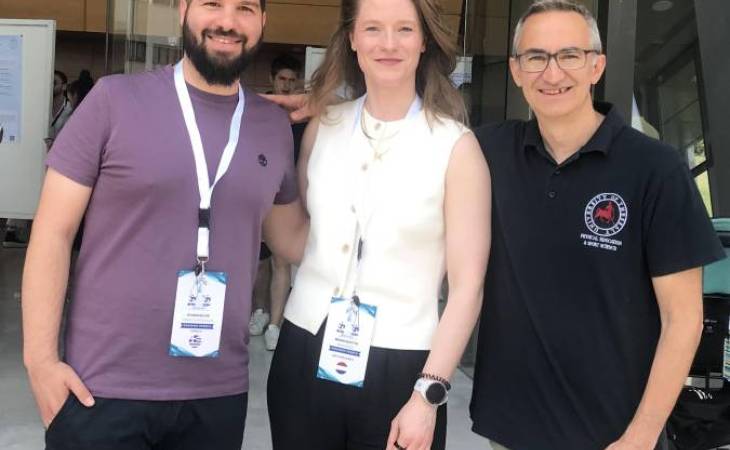OMIC-Engine, the National Research Infrastructure on Synthetic Biology, coordinated by the University of Thessaly, successfully completed its work through a hybrid two-day event revealing the central role of Synthetic Biology in research, education, industry and the bioeconomy.
On April 14 and 15, 2022, the coordinating committee and the academic partners of OMIC-Engine met at the Campus of Zografou of the National Technical University of Athens, and through a hybrid two-day event, open to the public, shared the results of the project as well as the latest updates from the world of Synthetic Biology.
The OMIC-Engine Research Infrastructure, entitled ‘OMIC-Engine: Synthetic Biology: From Omics Technologies to Genomic Engineering’, was founded in 2018 and it is one of the 28 national research infrastructures funded by the Operational Program "Competitiveness, Entrepreneurship and Innovation 2014- 2020" of the NSRF. The University of Thessaly is responsible for the project coordination by collaborating with research teams from the Universities of Patras, Thrace, Athens, Thessaloniki, Ioannina, and the National Hellenic Research Foundation. The vision of OMIC-Engine is the development and establishment of interdisciplinary research through the utilisation of Synthetic Biology, aiming to create useful applications for society, the environment and the agri-food sector. At the same time, through educational programs, OMIC-Engine aims to support and enhance the education of the next generation of Synthetic Biologists.
During the two-day event, OMIC-Engine's academic partners presented the role of Synthetic Biology both in the production of high value-added products and in nutrition and sustainable development. Greek iGEM teams shared their innovative research projects initiating a dialogue on the role of education in engaging with the principles of Synthetic Biology.
In his address, the Rector of the University of Thessaly, Mr. Zisis Mamouris, thanked the coordinating committee from the Department of Biochemistry & Biotechnology as well as the partners from the seven collaborating academic institutions for their excellent cooperation, while stating that:
Synthetic Biology is rapidly evolving into a wonderful toolbox enabling the expansion of biological plasticity, overcoming biological limitations, and at the same time redefining the basis of bioeconomy. OMIC-Engine contributes to this revolutionary shift by asking questions, participating in the global debate, communicating the possibilities of synthetic biology in the industry sector, educating young researchers, co-creating solutions and tools with end-users whilst placing Greece on the world map of synthetic biology.
In parallel, guest speakers from the United Kingdom and Spain highlighted the international perspectives on Synthetic Biology research. Mr. Rennos Frangoudis, Director of the Edinburgh Genome Foundry at the University of Edinburgh, presented the contribution of automation to the evolution of Biology, while Mr. Manuel Porcar, from the University of Valencia, Spain, presented the role of standardization in Synthetic Biology.
On the last day of the two-day event, an enlightening round table with the participation of Mr. Michalis Dritsas from the Greek Ministry of Development & Investment, George Sakellaris from the Academy of Sciences Czech Republic and member of the Bioeconomy Hub, Rennos Frangoudis from the University of Edinburgh, Konstantinos Mathiopoulos, Frangiskos Kolisis and Charalambos Stamatis, research coordinators of OMIC-Engine, stressed the role of Synthetic Biology in the national map of bioeconomy in our country, Greece.
Learn more and discover the work of the OMIC-Engine Research Infrastructure via https://www.omicengine.com/.
You can contact the OMIC-Engine Research Infrastructure at info [at] omicengine.com (info[at]omicengine[dot]com) or via Twitter, Facebook and LinkedIn.
Date: Wednesday, December 3rd, 2025 Time: 15:00 (Greece time) Location: Online (Zoom) Speaker: Dr. Javier Ruiz-Ederra Affiliation: University of the Basque Country (UPV/EHU) & Biogipuzkoa Health Research Institute Title… more

